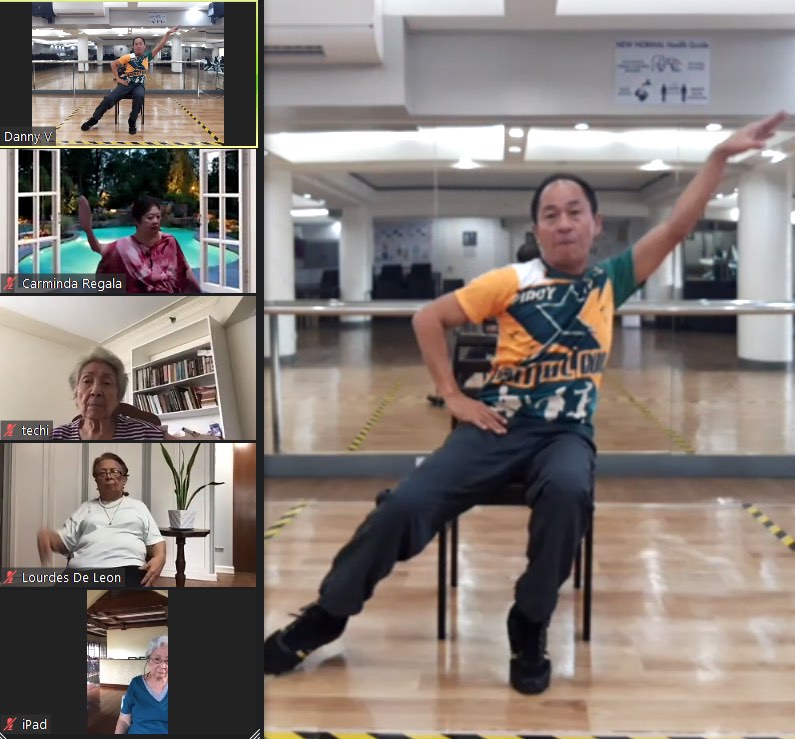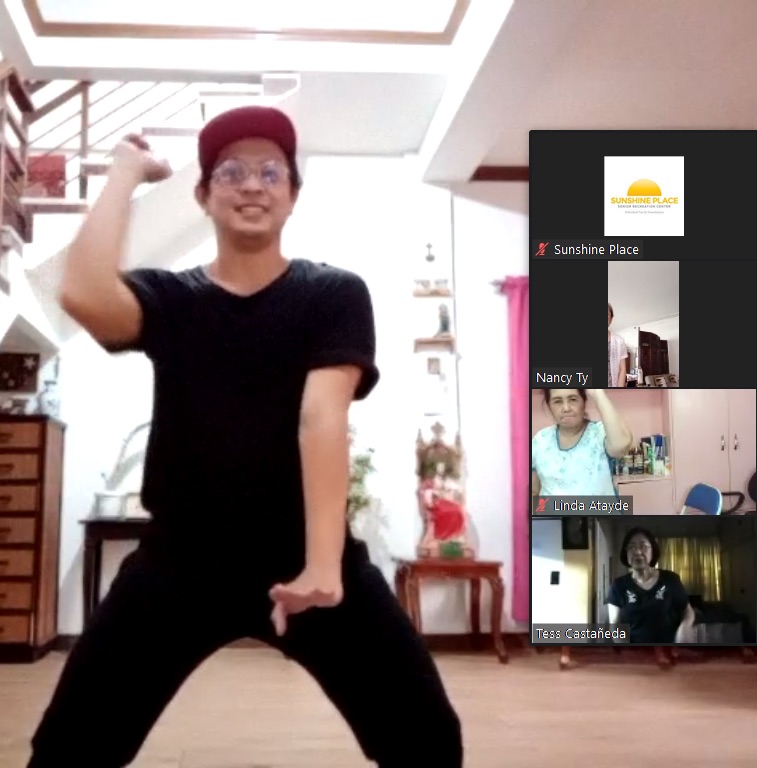Expert gives tips on how seniors can stay mentally and physically fit in this pandemic
Long before COVID-19 came to cast a veil of gloom on our lives, there was and still is a place called Sunshine Place, where our elderly can bask in eternal sunshine even in their twilight years. Here, you won’t see seniors sitting in rocking chairs; instead, they’re rockin’ the night away on the dance floor.
They’re tap dancing and ballroom dancing, too! You won’t hear them panting for breath; instead, they’re sitting in front of canvases, painting away. They’re even learning how to speak French, oui! They’re likely not just stretching their imagination but also flexing their muscles in Zumba workouts.
Here, our beautiful seniors believe that a mind-lift beats a face lift anytime. No senior moments here, just great fun moments.
At Sunshine Place: Senior Recreation Center, there’s something to help seniors keep themselves physically fit and mentally active. A recent activity was the “Mental Wellness in the New Normal” talk with Dr. Marissa de Guzman, University of the Philippines College of Medicine professor and psychiatrist, who focused on “Caring for oneself: How to keep a sound mind and healthy body.”
Stressing the effects of stress
“Our stomach is turning; sometimes, we have cold, clammy perspiration; we get palpitations,” Dr. De Guzman enumerates. “These are signs of stress that can also affect our body—sometimes, we lose our appetite or start to lose weight. Or gain weight. The pandemic is apparently going to continue so we feel stressed. Stress can affect us emotionally, physically, behaviorally, socially, and spiritually. We feel we don’t know what to do, we have difficulty sleeping or we give up our healthy diet because we munch on anything that’s available.

“Then there are the emotional reactions that refer to what one feels—we get anxious, depressed, we don’t know what to expect. The cognitive reactions refer to what we think of—sometimes, we’re bored, we don’t know what to feel anymore, we feel lonely. Physiological reactions refer to what happens to one’s body while spiritual reactions refer to one’s belief and relationship with God. All these produce very strong emotions in a person.”
All this may trigger suicidal behavior in older adults, which in fact is a major public health issue in many countries. Did you know that adults, 65 years old and up, account for almost one in five suicides in the US?
“We need to identify how we can manage this anxiety in isolation during this quarantine,” Dr. Marissa stresses. “First, we need to identify the stressors so we know how to deal with them. If you want change to happen, the first thing is to accept what’s happening so you can do something about it. So, what are the external stressors? Fear and anxiety of infection, the long isolation we’re going through now, decrease in physical activity, unpredictable events, disrupted social relationships, financial losses, managing a different workload, uncertainty about the future.”
The silent killer
There’s a growing silent epidemic afflicting seniors. Statistics from the Centers for Disease Control and Prevention show that 20 percent of seniors experience some type of mental health concerns. Among the most common conditions, according to Dr. De Guzman, are anxiety, severe cognitive impairment, and mood disorders like depression.

Can these be treated?
“Yes,” comes the good doctor’s quick, resolute reply. “These can be treated with medication, practical assistance, maybe possible hospitalization, specialized counseling and psychotherapy, learning to reduce stress.”
She can’t stress enough the importance of support. She proceeds to break it down as follows:
S—Be sensitive to other people’s feelings.
U—Understand what the other person may be going through.
P—Your presence is important. They should see that they’re not alone. They’re not the first to go through it and certainly not the last.
P—Give practical assistance.
O—Be open-hearted.
R—Respect others and their differences.
T—Be trusting of oneself and others.
DIY remedies
Actually, there are things we can do for ourselves to keep post-Covid-19 stresses at bay. Dr. De Guzman names some: “Stay informed, know what’s happening around you—the Department of Health provides daily updates (on current health issues). Keep on learning, be active, get physical. Cultivate friendships—set up a regular schedule for phone/video calls with family and friends. Design your living spaces to fit your needs and always with safety in mind. Pick up a hobby to increase the neuroplasticity of the brain.
“Volunteer for a worthy cause as this will give you a sense of purpose. Care for a pet because pets offer companionship and can ease feelings of loneliness. Talk to your children while they can still listen to you. Avoid conflicts, arguments. Relax your mind and body. If you need intervention, take a proactive approach. Develop healthy habits, maintain cleanliness at home. Do your share in terms of the responsibilities at home.”
And remember: It’s not the years in your life that count but the life in your years!
(Sunshine Place: Senior Recreation Center, a member of the Felicidad Tan-Sy Foundation, is located at 56 Jupiter St., Brgy. Bel-Air, Makati. Call 88564162, 09175155656. Sunshine Place is on Facebook, Instagram, and YouTube.)


